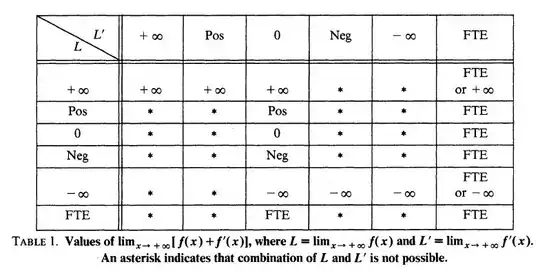Prove that the statement is wrong.
If $\lim f(x)$ exists but $\lim g(x)$ does not exist, then $\lim f(x)g(x)$ does not exist either.
Prove that the statement is wrong.
If $\lim f(x)$ exists but $\lim g(x)$ does not exist, then $\lim f(x)g(x)$ does not exist either.
Consider $f(x) = \dfrac1x$, $g(x) = (-1)^{\lfloor x \rfloor}$. Consider $x \to \infty$ of $f(x)$, $g(x)$ and $f(x)g(x)$.
Consider $f(x) = 0$ and $g(x) = 1/x$, and look at the limits as $x \rightarrow 0$.
Consider the functions $$f(x) = 0 \quad \quad g(x) = x$$ and their infinite limits. Clearly $$\lim_{x \rightarrow \infty} f(x) = 0$$ Note that $\lim_{x \rightarrow \infty} g(x)$ does not exist. However, note $$f(x)g(x) = 0$$ Thus, $\lim_{n \rightarrow \infty} f(x)g(x) = 0$, which exists.
Less trivial, as $\ x\to \infty,\ $ $\ 1/x \to 0\,$ and $\,\sin(x)$ doesn't exist, but $\ \sin(x)/x\to 0$
You may find it helpful to build tables of all possibilities for various types of limit problems. For example, see the table below, which arises from a slick solution to a classic old problem of Hardy (there you will find examples for all cases in the table).
